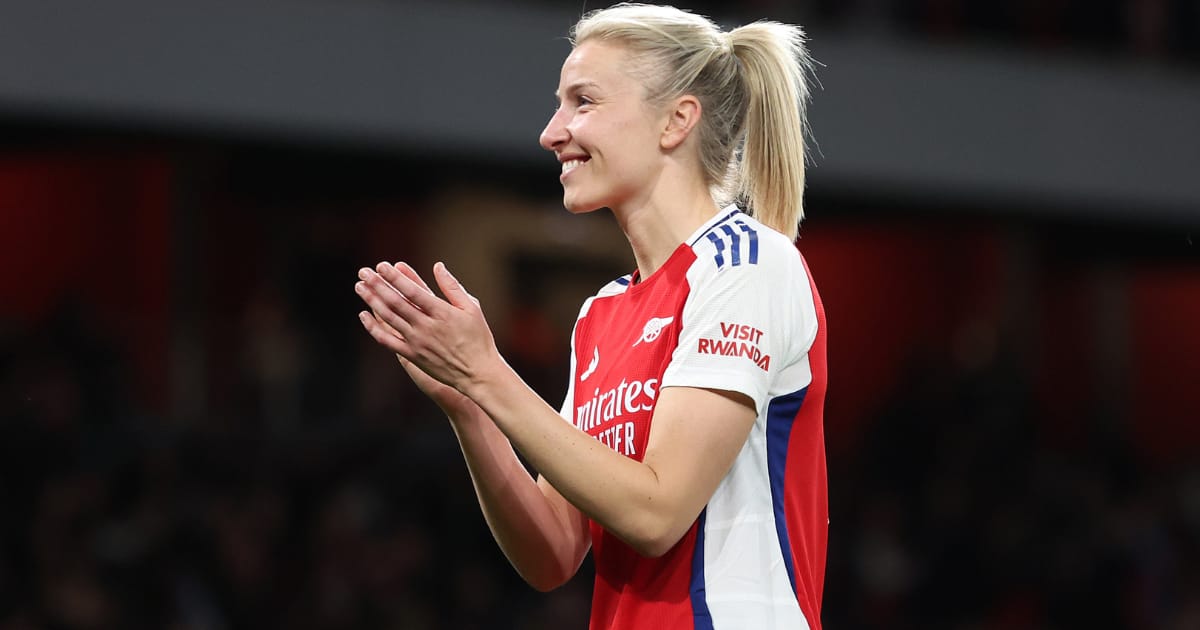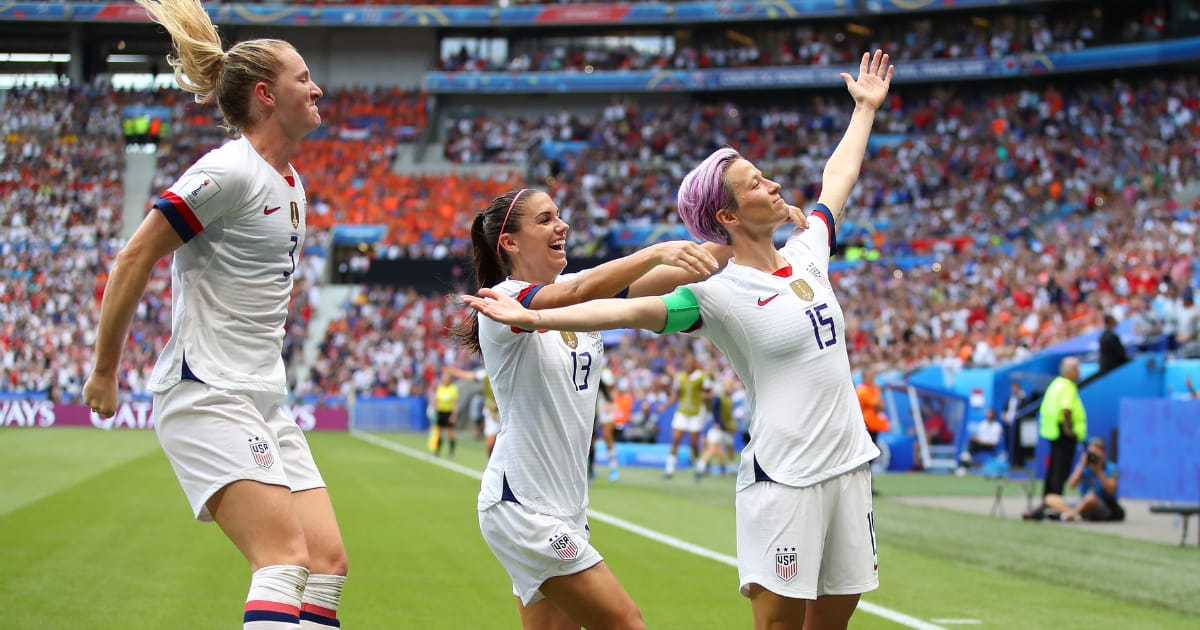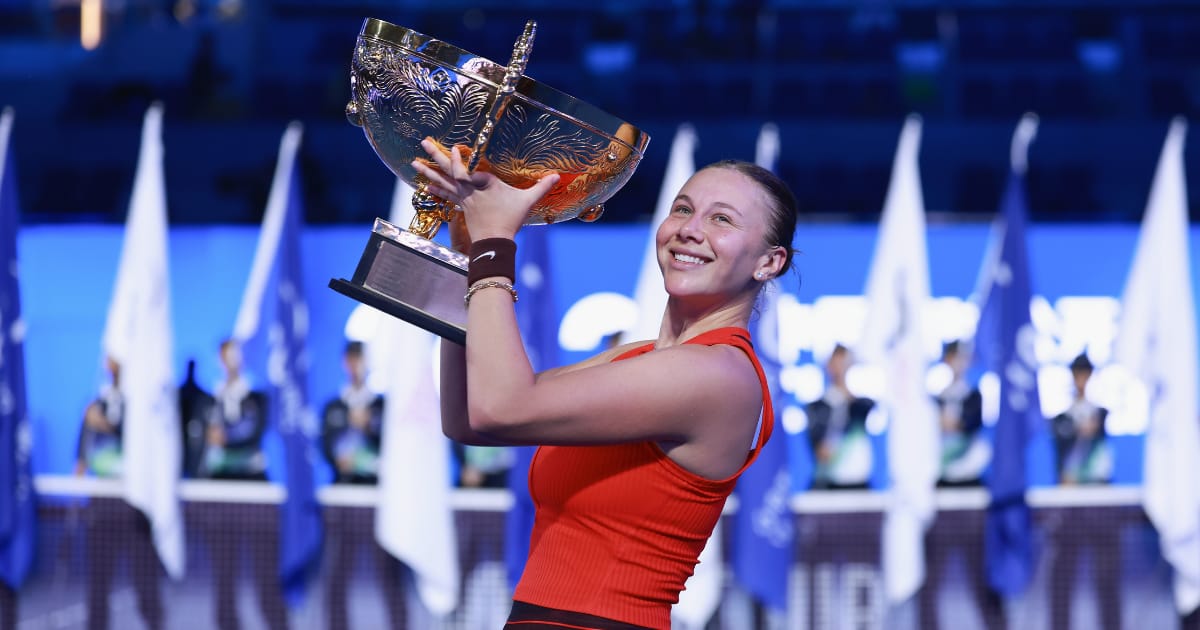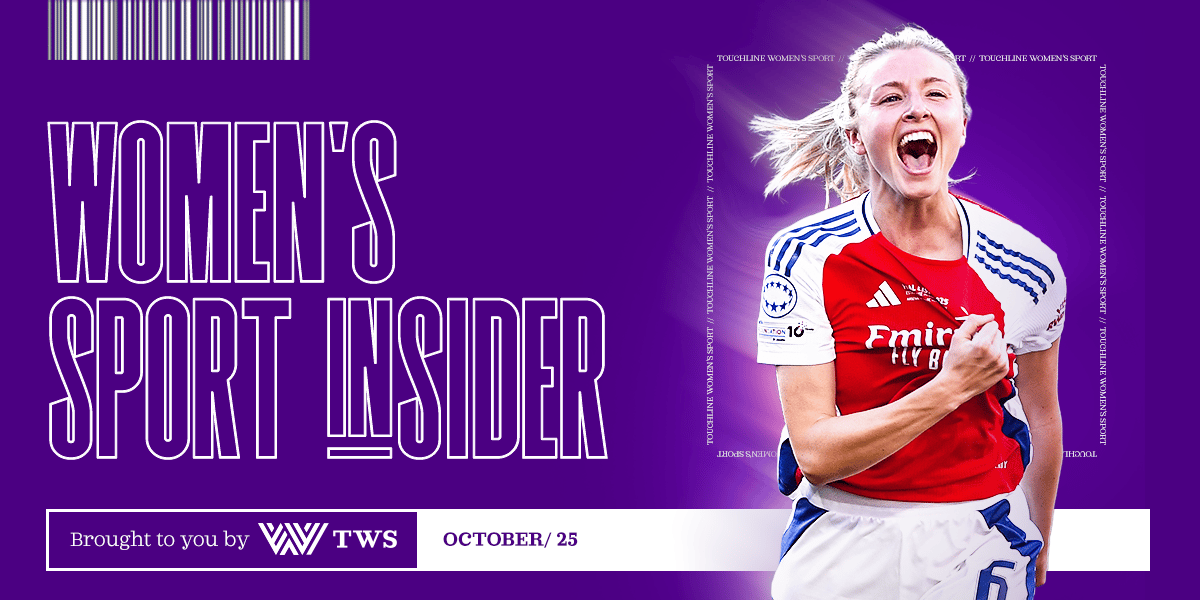Welcome to the fifth edition of Women’s Sport Insider!
I'm Molly McElwee, a sports journalist and author, and I'll be subbing in for Nancy this month.
For this newsletter, we are highlighting a development that has mostly flown under the radar in recent weeks, but could have an immeasurable impact on women's football.
UEFA published a first-of-its-kind framework for anyone working with women’s footballers, guiding them on how to approach menstrual cycle monitoring with their athletes.
In light of this news, it seemed like a good opportunity to look at how periods have become a big topic across the sporting world in the last five years or so, and what this guidance from a hugely influential organisation like UEFA could mean for players going forward.
We'll also be spotlighting some incredible storylines and developments across the past month of women's sport in our regular Top of the Table and Winning Women sections.
UEFA's new milestone for menstrual cycle tracking: The next step in breaking the taboo

England and Arsenal player Leah Williamson has spoken about the menstrual cycle in sport ©Getty Images
A decade ago, when British tennis player Heather Watson pointed to "girl things" impacting her performance at the Australian Open, she was hailed for breaking the silence around periods. Commentator Annabel Croft was among her supporters, saying she was "gobsmacked" Watson had been confident enough to refer to her menstrual cycle.
Such was the taboo around periods at the time, sportswomen rarely made any public reference to it. Watson was very much an outlier.
It is safe to say the conversation has made significant strides in the years since. More athletes have become comfortable talking about it, and period tracking in elite sport has increasingly become part of the discussion too.
While that has made a huge difference, actually understanding how to support athletes is key. It's why UEFA's latest work should be celebrated as an important milestone.
Late last month they published their consensus statement on menstrual cycle tracking in women’s football, essentially providing a framework for anyone working within women’s football that will help align their approach when it comes to tracking menstrual cycles in football.
In UEFA's own words, their 10-page consensus statement aims to promote "standardised, athlete-centred tracking protocols and establish priorities for practice and future research in female football”.
UEFA’s work in this space stretches way back. In 2021, they set up a women's health expert panel comprising football doctors and sports scientists. According to UEFA, one “glaring gap” that emerged was “the inconsistent utilisation of menstrual tracking and data on menstrual health”.
They wanted to rectify that, so this resource was created for medical professionals, sports scientists, coaches and performance staff. First, it offers a rationale as to why menstrual cycles should be racked, and secondly provides practical recommendations for measuring cycle characteristics, ovulation, hormonal profiles and symptoms, as well as the ethical and cultural considerations to take into account.
No matter what European club or team a footballer might be playing for, this consensus ensures that they all have access to the same fundamental information on what aspects of the menstrual cycle practitioners should track, why tracking it is important and the insight that can be gained from doing so.
There is still not enough solid evidence to confirm certain hypotheses around injury risk or performance changes throughout the menstrual cycle. But UEFA's move to create a resource that teams at all levels of the game can turn to firmly acknowledges that this part of female health is an important piece of the puzzle when it comes to athlete wellbeing.
The word "standardised" stands out here too. So many sportswomen over the years have highlighted how female health has frequently been under-researched or difficult to navigate when they organise their elite training programmes. This new consensus ensures that backroom staff or those working across women’s football will feel confident when it comes to the key components to menstrual tracking. It will hopefully help to myth-bust and make sure more and more players feel supported during their menstrual cycle.
I remember the swell in interest in this topic six years ago, after the FIFA Women's World Cup in France. It was sparked by the United States Women’s National Team. They made headlines around the world for their stunning victory in the tournament and chose to use that moment to highlight female health too, revealing that they were harnessing data around their menstrual cycles to try to support their performances on the pitch.

The USA were one of the first to adopt menstrual cycle tracking in football ©Getty Images
USWNT backroom staff began tracking players’ individual cycles and tailored nutrition, recovery and training accordingly, in an effort to optimise performance. At the time, this was not a common news story in sport, nor was it the norm behind the scenes either. This was a pioneering programme, one which players cited as a positive development and which they all bought into. While no one was saying the USWNT won the World Cup because they were tracking their periods, acknowledging their symptoms and identifying patterns felt empowering to them.
There was no gatekeeping either. They chose to share their experience publicly in order to highlight the potential upsides that can emerge from this data-gathering exercise in women’s sport. Not long after, similar programmes were adopted by football teams across Europe too.
In 2020, Chelsea claimed to be the first club to tailor training to players’ menstrual cycles. The head coach at the time, Emma Hayes – who has spoken extensively about her own experience with the female health condition endometriosis – said it was a way for the club to acknowledge the physical differences between the men’s and women’s teams.

Former Chelsea manager Emma Hayes made period tracking a priority ©Getty Images
“The starting point is that we are women and, ultimately, we go through something very different to men on a monthly basis,” she said. “It comes from a place of wanting to know more about ourselves and understanding how we can improve our performance.”
Now, many of the top teams in the world incorporate period tracking in their routines. UEFA's consensus will no doubt help support them, as well as smaller clubs and grassroots efforts to adopt similar programmes.
Even with increased awareness around period health, misconceptions still persist across women's sport. The Female Athlete Health Report in 2023, conducted by Project RED-S and Kyniska Advocacy, found that 36 per cent of female athletes ignored missed periods, thinking it was a normal part of being an active person.
Nuffield Health research published that same year looked at the grassroots level and found 84 per cent of teenage girls said their interest in sport and fitness diminished after starting their period. Almost one in four said they felt embarrassed to exercise during their menstrual cycle.
Those insights show there is work to be done, so progress in this space should be celebrated if it goes any way to improving women's lives in sport.
Lionesses and Arsenal player Leah Williamson put it best earlier this year: “I play sport to be free; I can’t be free if I’m worrying about the most natural thing in the world.” Open conversations around periods, as well as expert-supported information, help to give women peace of mind on the field of play. Here's to more of it.

BARBIE X WOMEN’S RUGBY
Mattel launched Team Barbie on International Day of the Girl, to "encourage girls to own their confidence proudly". The four dolls of USA rugby star Ilona Maher, Red Roses world champion Ellie Kildunne, New Zealand legend Portia Woodman-Wickliffe and France's Nassira Konde are a nod to the impact of this year’s record-breaking World Cup.
LONDON SHOWS UP
More than 1.4 million fans attended women's sport events in London this year, a staggering figure. Mayor Sadiq Khan shared the impressive number, which includes rugby – and the world record of 81,885 fans who showed up for the World Cup final at Twickenham – football, cricket, netball, hockey, basketball and athletics.

HANNAH COCKROFT

All-time great Hannah Cockroft won three gold medals for Great Britain at the World Para Athletics Championships in New Delhi. She topped the podium in the T34 100m, 400m and 800m to take her total tally to a mind-boggling 19 gold medals at world championships since 2011.
AMANDA ANISIMOVA

After heartbreaking losses in the finals of Wimbledon and the US Open, American tennis player Amanda Anisimova shrugged off those ghosts to win the China Open. It was her second WTA 1000 title of 2025 and secured her a debut spot in the WTA Finals. More than anything, it was a lesson in perseverance.


